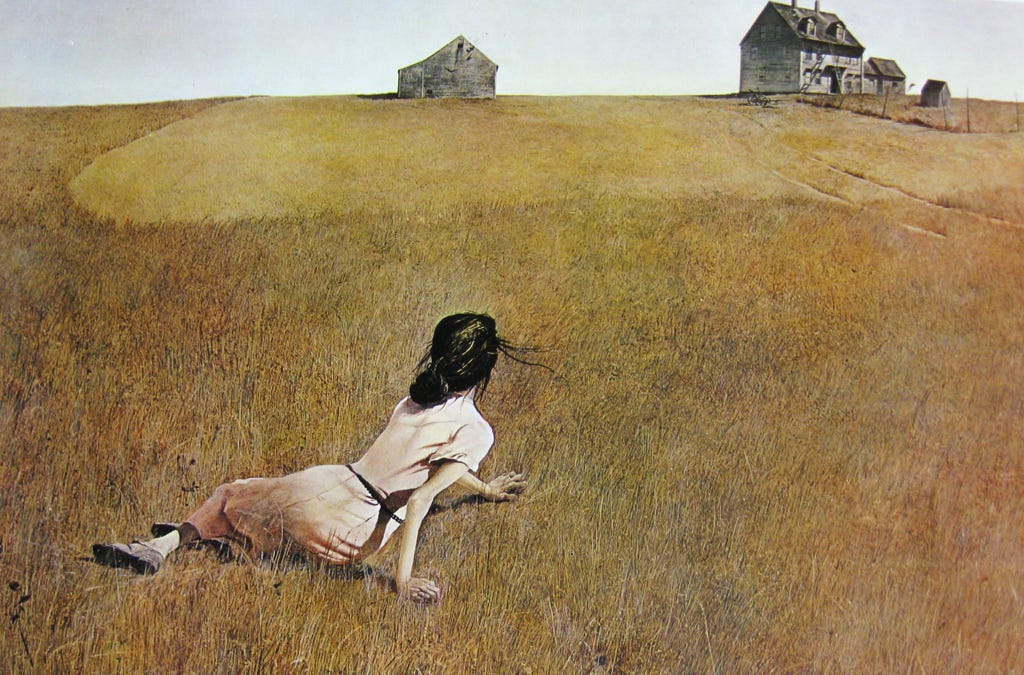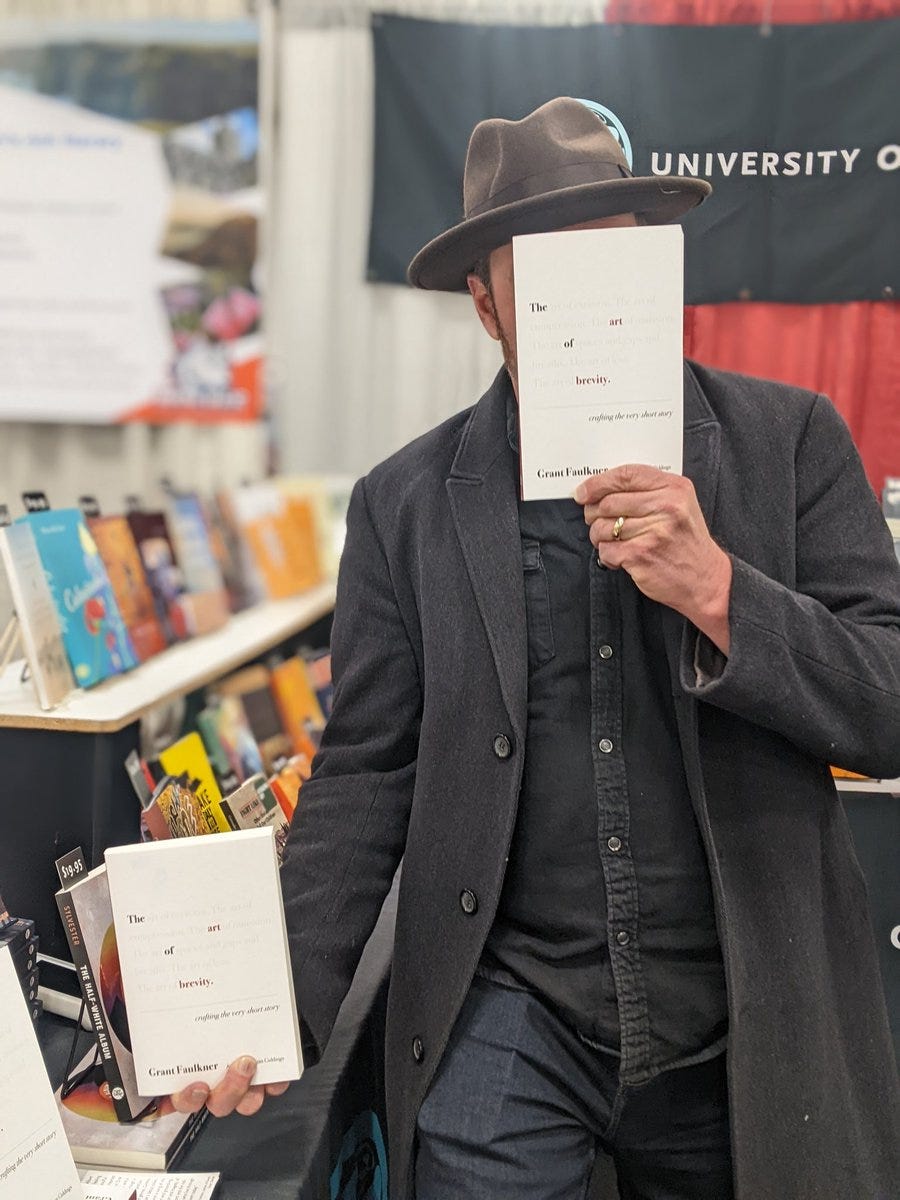Longing
“Longing, we say, because desire is full of endless distances.”
—Robert Hass
I have longing on my mind because I recently interviewed Madelaine Lucas about her debut novel, Thirst for Salt, which is a novel of longing for love, longing for a place, and longing to understand. It’s a beautiful, lyrical book, and it made me think about the place longing has in our lives. Longing is almost a genre unto itself.
We think of longing as being wrapped up in romance and desire, but it’s broader than that. I think of how an intense longing for the past, a person, an experience, or a life drives a story or a character. And the kind of longing I’m thinking about is different than desire. Desire is an itch that wants to be scratched, but longing is the ache that accompanies a deep love that lives in your heart.
Desires are achievable, but the things we long for are often unattainable, or there are complicated obstacles in place. Longing is also deeper than desire. Desire exists in the realm of choice, but longing takes root deep in your being. It’s existential. You can’t just turn it off or chase it away.
Longing carries with it an idea of a type of utopia lost. Or a utopia searched for. It’s painful, yet somehow pleasurable at the same time. We’re mythologizing something, making it larger than life through our longing, so we’re fictionalizing it, living through a projected story, and creating an idea of life that is really impossible in the end.
Perhaps this is why longing is such a part of storytelling and fiction—the only way to experience the reality of longing is through the act of the imagination. And that imagination helps us travel through distances.
I think of some of the great novels of longing. In The Great Gatsby, Gatsby spends his entire life longing for Daisy, not only to return to their early, idyllic days of love, but because she represents a better life, a perfect life, a life that he’s never had and really can’t have.
I remember being overwhelmed by the longing in Love in the Time of Cholera. For fifty-one years, nine months, and four days, Fermina Daza and Florentino Ariza don’t speak a word to one another. Then, following the death of Fermina’s husband, Florentino decides to remind her that he has always loved her. The plot of Love in the Time of Cholera is about learning to wait, about perseverance and endurance, and about never forsaking the object of one's love—it’s an idealized story of longing, similar to Gatsby in its way, I suppose.
So our longing can feel so powerfully true, but longing is always a story to decode and question since it’s inherently fiction. When I think about books about desire, they feed your desire, but when I think of books of longing, I think of how they help you cope. Our longings become sacred, they become such a part of who we are that to forget can feel like murder.
Perhaps that’s why we have stories like The Great Gatsby and Love in the Time of Cholera: to spend a life remembering and nourishing a longing is its own type of marriage.
A story of longing has a different flow for me. The longing creates a mood that eclipses plot for me. Robert Olen Butler said that the essence of plot is yearning, and I’ve always loved that definition. A story of longing is a story of restless yearning that takes a story from one moment to another with uncertainty lacing itself through the prose, creating a tension that supercedes any series of plot points.
If a writer is pursuing a mystery, that’s a type of plot unto itself.
As I wrote in my book, The Art of Brevity, to yearn in a state of uncertainty means writing toward the mystery, toward the questions. Even though we seek answers, we also know that the answer often isn’t the answer. Or that sometimes an answer is insufficient.
If a writer is pursuing a mystery, that’s a type of plot unto itself. We can feel that anticipation, the suspense that naturally resides between the known and the unknown, the opening up of questions.
“If mystery, the genre, is about finding the answers, then mystery, that elusive yet essential element of fiction, is about finding the questions,” said Maud Casey.
All stories must possess mystery. They either offer a frame in which the reader tries to solve the mystery or they are mystery itself, each sentence, each scene, built around questions that go unanswered. Sometimes a story can be about mystery itself and nothing more.
Longing is inherently a mystery because longing is a question that beckons and demands. It’s a riddle that needs to be solved. It’s a memory that needs the nourishment of yearning to stay alive.
“Mystery in fiction means taking the reader to that land of Un— uncertainty, unfathomability, unknowing. It’s Kafka’s axe to the frozen seas of our soul. In other words, it will—and it should—mess you up,” said Casey.
Just as longing messes you up, even as it clarifies. We’re always running to something in the distance.
To listen to my interview with Madeleine Lucas, tune into Write-minded.
Because a quote
“For to wish to forget how much you loved someone—and then, to actually forget— can feel, at times, like the slaughter of a beautiful bird who chose, by nothing short of grace, to make a habitat of your heart.”
—Maggie Nelson, Bluets
Because I’ve got a couple of things going on
Thursday, April 20, 2023, 6:30 - 8:00 p.m.
Kepler's Books, 1010 El Camino Real, Menlo Park, CA, 94025
I’m teaching a two-hour online class, Five Things I’ve Learned about the Art of Brevity, Sunday, April 30, at 5:00 p.m. Pacific.
I’ll talk about such things as omission, how creativity is enhanced by constraints, how a writer of flash fiction has to be a master pruner, and much more. This will be a Zoom format, so you can ask questions. Also, prepare to write!
Because The Art of Brevity
Please consider buying my new book, The Art of Brevity. Writers tell me they like it. You might say it’s my way of being a poet in this world. My little stories are my little prayers. I like to drop them into the world.
Because more about me
I am the executive director of National Novel Writing Month, the co-founder of 100 Word Story, and an Executive Producer of the upcoming TV show America’s Next Great Author. I am the author of a bunch of books and the co-host of the podcast Write-minded.
My essays on creative writing have appeared in The New York Times, Poets & Writers, Lit Hub, Writer’s Digest, and The Writer.
For more, go to grantfaulkner.com, or follow me on Twitter or Instagram.





Beautiful. I never thought about longing as so decisive, it’s own powerful emotion and how singular it is.
longing is an immense reserve of active power, touched with the creative, the tender, the divine. when we long, we move toward. we reach. it is held in the roots of the Word: form the Old English langian, meaning ‘to grow long,’ and the German langen—to reach, to extend. in Hebrew, it comes from the same root as the word for passion. The place you suffer, in other words, is the same place you reach from: the same place you care profoundly enough to act. to grow long.
thank you for your Words <3